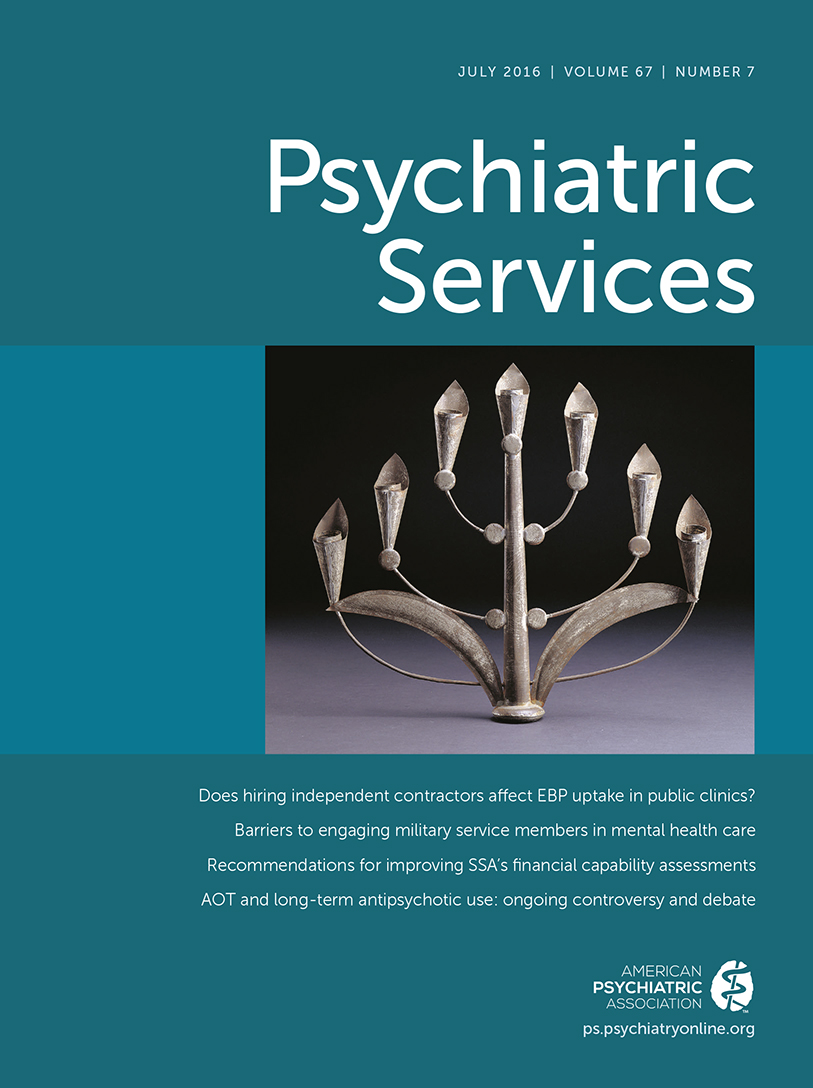AOT and Long-Term Use of Antipsychotics—3
TO THE EDITOR: The Open Forum by Barnes and Badre (1) contains substantial errors in its characterization of assisted outpatient treatment (AOT). AOT, as implemented in the United States, does not mandate the use of medications and is rarely long term—and thus does not mandate the long-term use of antipsychotic medications. The false basic premises about AOT render the rest of the Open Forum moot.
Barnes and Badre state, “In most cases, AOT includes mandated medication administration.” This is not the case. AOT typically involves a court order to adhere to a treatment plan for a patient who qualifies for AOT under state criteria. It does not compel any specific treatment, including medication (2). In fact, mandated outpatient medication administration is not authorized by any state AOT statute, nor known to be practiced anywhere in the United States. In ruling against a constitutional challenge to the state’s “Kendra’s Law,” the New York Supreme Court (3) stated, “The restriction on a patient's freedom affected by a court order authorizing assisted outpatient treatment is minimal, inasmuch as the coercive force of the order lies solely in the compulsion generally felt by law-abiding citizens to comply with court directives.” No court has ruled otherwise. Patients under AOT orders who receive medication over their objection do so as a function of state criteria regulating such treatment for every patient, not as a provision or remedy of AOT.
Furthermore, although Barnes and Badre imply that AOT orders are long term, this is usually not the case. The vast majority of initial AOT orders terminate in less than one year (4). Even when AOT orders are extended through court-ordered renewal, they rarely exceed two years, and mandated medication is not part of them.
Badre and Barnes are also incorrect in stating that California mandates its AOT patients be placed on a 72-hour involuntary hold in a locked facility for failure to comply with treatment plans. In fact, no such mandate exists. Provisions in California’s “Laura’s Law” regarding involuntary hospitalization for evaluation stipulate that if an individual under a “Laura’s Law” court order fails to comply, if a physician finds that there is reason to suspect that the patient meets criteria for inpatient admission, and if reasonable efforts have been made to solicit compliance, then the individual may be picked up for a psychiatric evaluation, which itself does not require hospitalization (5). The same intervention is authorized under the 5150 provisions of California law for every citizen.
Long-term antipsychotics have their critics, and court-ordered outpatient treatment has its. The Open Forum by Barnes and Badre conflates unexamined, untrue, or unrelated criticisms from each camp to question the merits of a practice that does not exist as the authors describe it.
1 : Is the evidence strong enough to warrant long-term antipsychotic use in compulsory outpatient treatment? Psychiatric Services (Epub ahead of print, March 15, 2016)Google Scholar
2 : Outpatient commitment reexamined: a third way. Psychiatric Services 65:816–817, 2014Link, Google Scholar
3 Matter of KL, 1 NY3d 362 at 370 (2004)Google Scholar
4 : Mental Health Commitment Laws: A Survey of the States. Arlington, Va, Treatment Advocacy Center, 2014. Available at tacreports.org/state-surveyGoogle Scholar
5 Calif Welfare and Institutions Code Section 5346(f)Google Scholar



